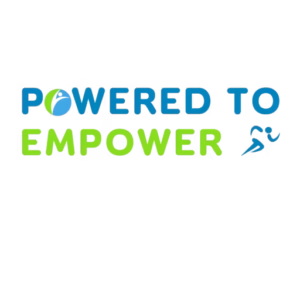“Judge not, that you be not judged. For with the judgment you pronounce you will be judged, and with the measure you use it will be measured to you.
Matthew 7:1-2 ESV
In a world overshadowed with disappointments and deceit, we will learn that to love others truly we will have to look beyond their faults. It is very easy to see the faults of others – and to judge them. Yet to truly love others as God requires of us, we will have to look beyond their faults.
If two people are in a fight, most times each will tell what the other has done, but they rarely see their own actions. However we should see ourselves before we see others. This way we can see that we all do bad stuff that might even hurt others too.
It is important to see ourselves for who we really are. It is only when we own up to who we are that we can make way for change. A person who is sick and doesn’t think they are will find no need for a doctor. However there is power in accepting things for what they are so we can equip ourselves to defeat them because of who and Whose we are.
Let us have a look at 5 strategies we can use to help us to look beyond the faults of others – and to love them anyway.
5 Ways To Look Beyond The Fault Of Others
1 Understanding Our Shared Humanity
The first step in loving others beyond their faults is to identify with our shared humanity. Every person, without exception, is flawed in their own unique way. We all carry baggage, insecurities, and moments of weakness. This is a result of our shared fallen nature and the sin that pollutes us. By recognizing this shared imperfection, we open the door to empathy and compassion.
We should also understand that we have a shared enemy who seeks to defeat us by any means necessary. Satan is our true enemy and a lot of times he is the true culprit. Because of this we should give each other the benefit of the doubt and love one another no matter what.
2 Empathy: The Bridge to Unconditional Love
“Then Peter came to Him and said, ‘Lord, how often shall my brother sin against me, and I forgive him? Up to seven times?’“Jesus said to him, ‘I do not say to you, up to seven times, but up to seventy times seven.
This story of Jesus giving Peter instructions on how to forgive is a story of unconditional love. Love will keep us forgiving each other, over and over again, even when it doesn’t make sense. The Bible is true when it says that love never fails.
Empathy is the cornerstone of loving others unconditionally. It’s the ability to put ourselves in another person’s shoes, to understand their feelings, thoughts, and experiences. We should also understand that given similar situations, we experience similar emotions and can operate in similar ways. When we practice empathy, we create a bridge that connects us with others on a deeper level. We realize that behind every fault or mistake is a person with their own struggles and challenges.
3 Reframing Faults as Opportunities for Growth
Rather than seeing faults as obstacles to love, we can choose to view them as opportunities for growth and transformation. Mistakes and flaws are part of the human journey, but they also offer valuable lessons. It is often because of our mistakes that we can go to highers heights and venture deeper depths. When we love someone despite their faults, we encourage them to learn from their mistakes and become better versions of themselves. It’s a powerful way to support personal development.
4 There is Freedom in Letting Go
One of the hardest things to do is to forgive. Forgiveness not only takes time but it also hurts. Yet, in order to truly love each other and to look beyond each other’s faults, we must forgive. The good news is that there are not only scriptures to help us achieve a forgiving heart, but God will also help us on our way. The truth is that we can do all things through Christ who enables us.
Loving others unconditionally also means letting go of the need to judge or criticize. It means accepting people as they are, faults and all. This freedom from judgment not only benefits those we love but also liberates us from the burden of negativity. It allows us to experience deeper, more meaningful relationships.
5 Practicing Self-Compassion
To love others unconditionally, we must first practice self-compassion. There is a saying that goes “charity begins at home.” This I find to be very true. In order to truly love others, then we must truly love ourselves. We should take care of our mind and our bodies with a wholistic approach.
It’s challenging to extend love and forgiveness to others if we don’t offer it to ourselves. Self-compassion involves treating ourselves with kindness and understanding, especially when we make mistakes or have faults. By doing so, we become better equipped to offer the same to others.
Let's Conclude
May God help us to see beyond the mistakes of others, into the beautiful fields of gold that exists within them. We must realize that the beauty of a person is not so much in what they have done, but it is in who they really are and in whose they are. Our worth is not found anywhere else but in the glorious image in which God has created us. We should live with the knowledge that none of us have it all together. Humans rise and fall and experience the joys and sorrows of this life. Even though we have enormous differences ,together we struggle in a broken world. Compassion should be the order of our days, everyday. Compassions doesn’t mean we shouldn’t see the sin, it just means we should forgive and love the sinner.
I pray that God will lead us where He wants us and that we will all experience His abounding love. When we experience God’s great love, we are able to see beyond the faults of others judgin less and loving more. God Bless You.







